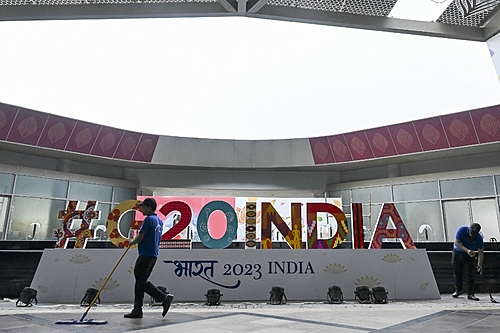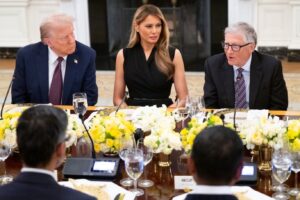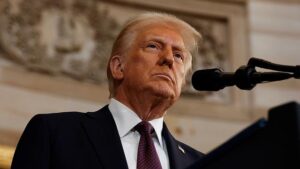
Between September 9th and 10th, India will host the 18th G20 Summit. The theme of the meeting, “One Earth · One Family · One Future”, was taken from the ancient Sanskrit text of Maha Upanishad, which highlights the value of all life – human, animal, plant and microorganisms – and their interconnectedness on planet Earth and in the Universe. The country will host the meeting amid an atmosphere of great jingoism, as India managed to make the first landing of a probe on the south pole of the Moon.
The G20 was created in 1999 in the wake of the financial crisis that rocked Asia two years earlier. In principle, it was a meeting of economic ministers and central bank presidents from the most economically representative countries in the world. It was designed as a forum for international economic cooperation and to boost global governance mechanisms. In 2008, in the wake of the financial crisis that spread after the collapse of Lehman Brothers, the forum was elevated to a meeting of heads of state.
The previous summit took place in Bali, Indonesia. The main theme of the meeting should have been overcoming the recessive effects of the pandemic and economic recovery, but, at that moment, the attention of world leaders turned to the war in Ukraine and its impacts. Some leaders advocated excluding Russia, but the idea was rejected by the majority of members. The final statement made mention of the war, but avoided explicitly condemning Vladimir Putin’s government. The solution found to be able to approve a joint declaration was to reiterate the positions of each G20 member at the UN General Assembly (Resolution no. ES-11/1 of March 2, 2022) and also cite the concern with the damage caused by the war, such as the restriction on world GDP growth, the increase in inflation, the worsening of energy and food insecurity and, finally, the increase in risks to financial stability. Other mentions were made about international cooperation to combat pandemics, the importance of science and technology and innovation for development and combating the effects of climate change.
For the New Delhi summit, in addition to the 20 traditional members, leaders from Bangladesh, Egypt, Saudi Arabia, United Arab Emirates, Mauritius, the Netherlands, Oman, Singapore and Spain were invited. Representatives of organizations from the UN System, IMF, World Bank and leaders of regional forums, such as ASEAN, will also participate in the debates. Among the heads of state, the absence of Vladimir Putin (Russia), Xi Jinping (China), Lopez Obrador (Mexico) and King Salman Bin Abdulahziz Al Saud (Saudi Arabia) is notable.
It is worth highlighting that the work of the G20 begins well before the Summit meeting. They are carried out by so-called “sherpas” (an allusion to the Tibetan people who help mountaineers climb Everest), who are the diplomatic representatives of each country in the group. Sherpas are distributed across several committees that deal with topics such as economy, development, corruption, tourism, trade and investment, environment and climate change, agriculture, education, employment, etc. Subsequently, the Sherpas’ work is refined by foreign ministers with a view to obtaining a minimum consensus among heads of state. Parallel to the G20, meetings are organized with members of civil society such as union leaders, businesspeople, academics, scientists, social activists, female leaders, etc.
In theory, the themes and discussions of the G20 have global importance, as several burning issues with great social impact are exhaustively debated. In addition to the final declaration, several reports are produced that can serve as a guide for action by governments and society. It is worth accessing the set of documents issued by the Indonesian G20, which contains several sectoral reports.
The last stage of preparation, refining the sherpas’ work, takes place between September 3 and 6, when the foreign ministers will decide on the content of the “joint statement” to be released. There is an expectation that the document will advance on economic issues and leave aside more sensitive topics, such as geopolitics and the war in Ukraine. Actions will be mentioned for the main themes of work in the subgroups and the amount of resources to be promised to combat climate change, among other measures, will be mentioned.
One aspect to be considered will be the role of the countries of the so-called Global South, which gained a new role with the recent expansion of Brics. It is worth noting that at the India summit, in addition to the five current members of the BRICS, the recently added ones will participate: Argentina and Saudi Arabia (already members of the G20) and Egypt and the United Arab Emirates. There is a strong expectation that the African Union will be admitted to the G20. Finally, it is necessary to consider that the majority of global GDP growth in the coming years will come precisely from developing countries.
A type of meeting like the G20, which brings together countries at different levels of development, with different economic models and with different degrees of political articulation, is unable to offer practical and immediate measures against major global problems, such as underdevelopment, hunger, climate change, human rights or the end of armed conflicts. Just remember the gap between intentions and acts of events such as the Conferences on the Environment (COPs) and even the G7 meeting. The final declarations are always full of promises and good intentions, but in the absence of an effective international authority to enforce and monitor the agreed goals, the texts serve only as a piece of literature and a topic of study for International Relations students. President Lula, for example, continues to demand the US$100 billion promised by rich countries to protect tropical forests at the Paris COP in 2015. In practice, national interests, partisan disputes and the power of large economic groups lead to the near paralysis of each government in relation to the agreed terms. In this aspect, it is worth asking: has US President Joe Biden already managed to approve in his country’s Congress the US$ 500 million collaboration for the Amazon Fund that was promised by Environmental Advisor John Kerry?
In general, meetings of international cooperation mechanisms such as the G20 are important in bringing to light the major problems facing humanity. It also has the relevance of being a forum in which the leaders of the main countries can debate face-to-face their positions on different topics. However, the “locus” for the effective transformation of reality continues to be the national space of each country, where the interests of groups and social classes confront each other. From Brazil’s point of view, an effective solution to most of the issues debated at the G20 depends on organization and political strength in Congress and society.
Finally, it is important to follow the recent advances made in Brics to see if we can overcome the logic seen so far in countless international conferences and summits. But even so, we cannot forget that advances in any type of cooperation between different countries depend on our domestic action, whether to combat climate change, to eliminate poverty or to overcome economic and technological backwardness. It is in our hands to transform intentions into actions.
* Marcos Cordeiro Pires is a professor at Unesp. Professor of the Postgraduate Programs in Social Sciences (Marília) and International Relations “San Tiago Dantas” (Unesp-Unicamp-PUC-SP). Researcher at the National Institute of Studies of the United States (INCT-INEU).
** This is an opinion article. The author’s vision does not necessarily express the newspaper’s editorial line Brazil in fact.
Editing: Thales Schmidt
Source: www.brasildefato.com.br

